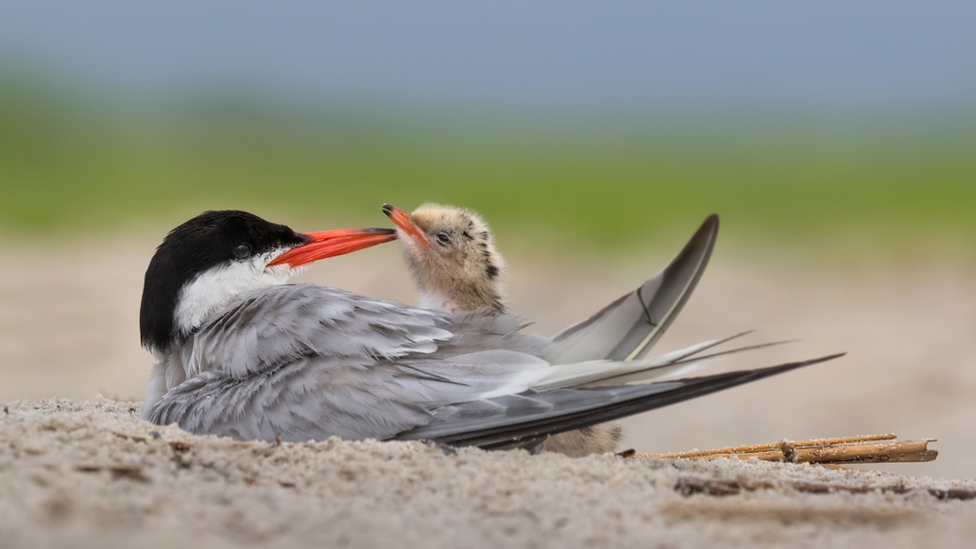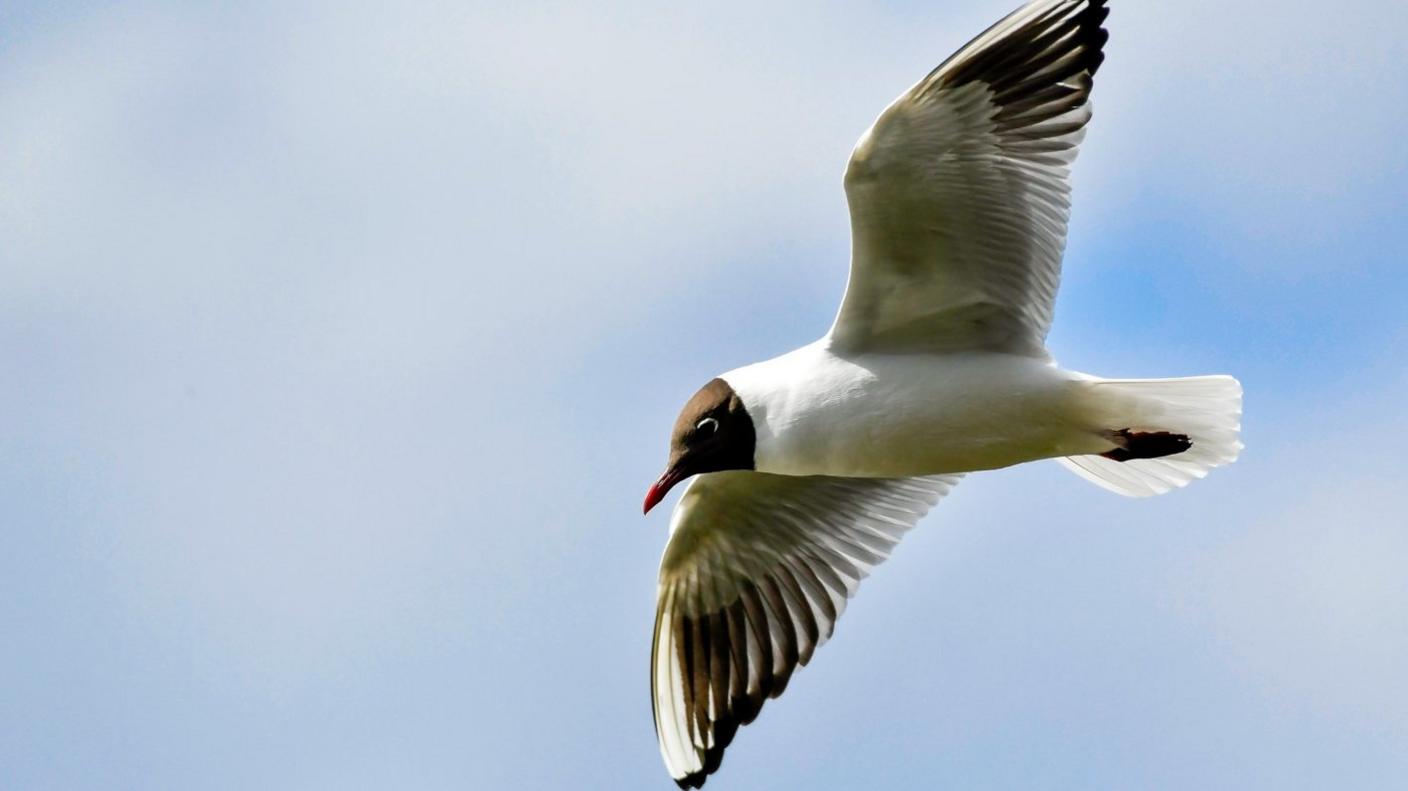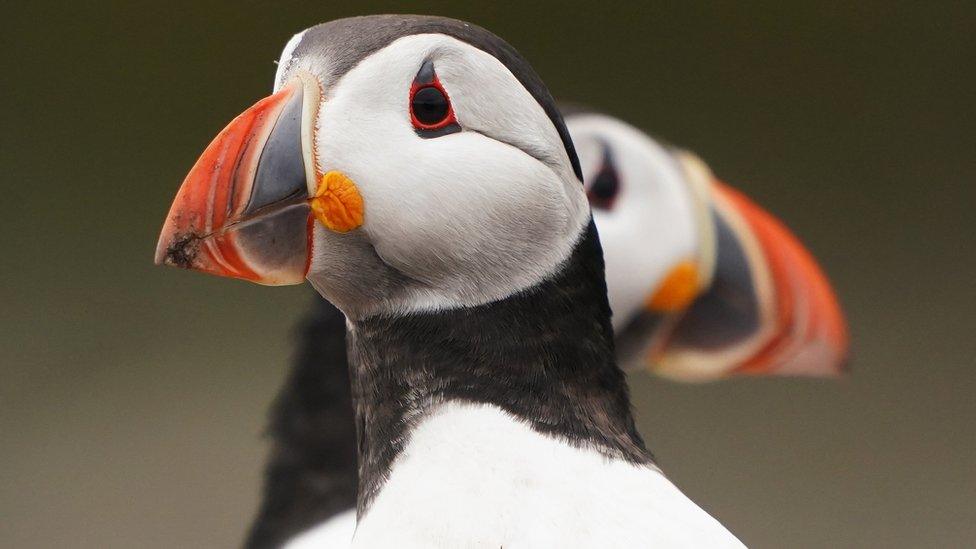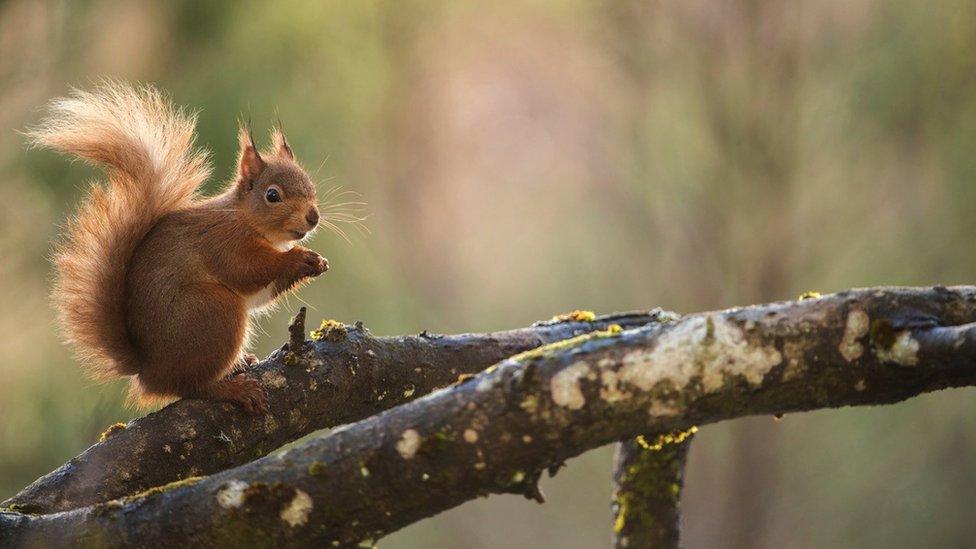Bird flu causes 'dramatic decline' in Northern Ireland seabirds
- Published

A decline of 47% has been recoded in the common tern
Bird flu appears to have caused dramatic declines in some species of seabirds in Northern Ireland, according to the RSPB NI.
It has carried out further research following the Joint Nature Conservation Committee's annual seabird survey.
Some species had shown increases.
But analysis by the RSPB now shows declines among several species that the charity says are most likely attributable to the bird flu outbreak across the UK in winter 2021.
The charity is calling for a seabird conservation strategy to support vulnerable seabird populations.
Common guillemot numbers had previously appeared to show a rise of 57%, but this latest survey indicates a decline of 25%.
Declines have also been recorded in the already red-listed kittiwake (-29%) and the common tern (-47%).
'Devastating falls'
"We're seeing species that were already being hit by a lot of different pressures now feeling that additional impact from avian flu," Erin McKeown, RSPB NI's Senior Seabird & Marine Policy Officer, said.
She outlined the variety of pressures faced by seabirds, including unsustainable fishing activities, invasive species predation in colonies and coastal sites, and the wide-ranging impact of climate change on marine ecosystems in general.
"Seabirds are a resilient species, but when they're under so many pressures it really does compound, and it just takes one more impact like avian flu to come along and you have these really devastating falls that can be really catastrophic for already incredibly vulnerable seabird species," Ms McKeown said.
Monitoring of key seabird colonies will continue to assess the impact of bird flu and to see any trends emerging.
"What Northern Ireland really needs now is an ambitious and robust seabird conservation strategy," Ms McKeown said.
"That needs to be in place and it needs to have timebound actions and it needs to be resourced so it's got the financing and it's prioritised going forward, so we're really safeguarding our seabirds."
Related topics
- Published16 November 2023

- Published28 September 2023

- Published27 September 2023
